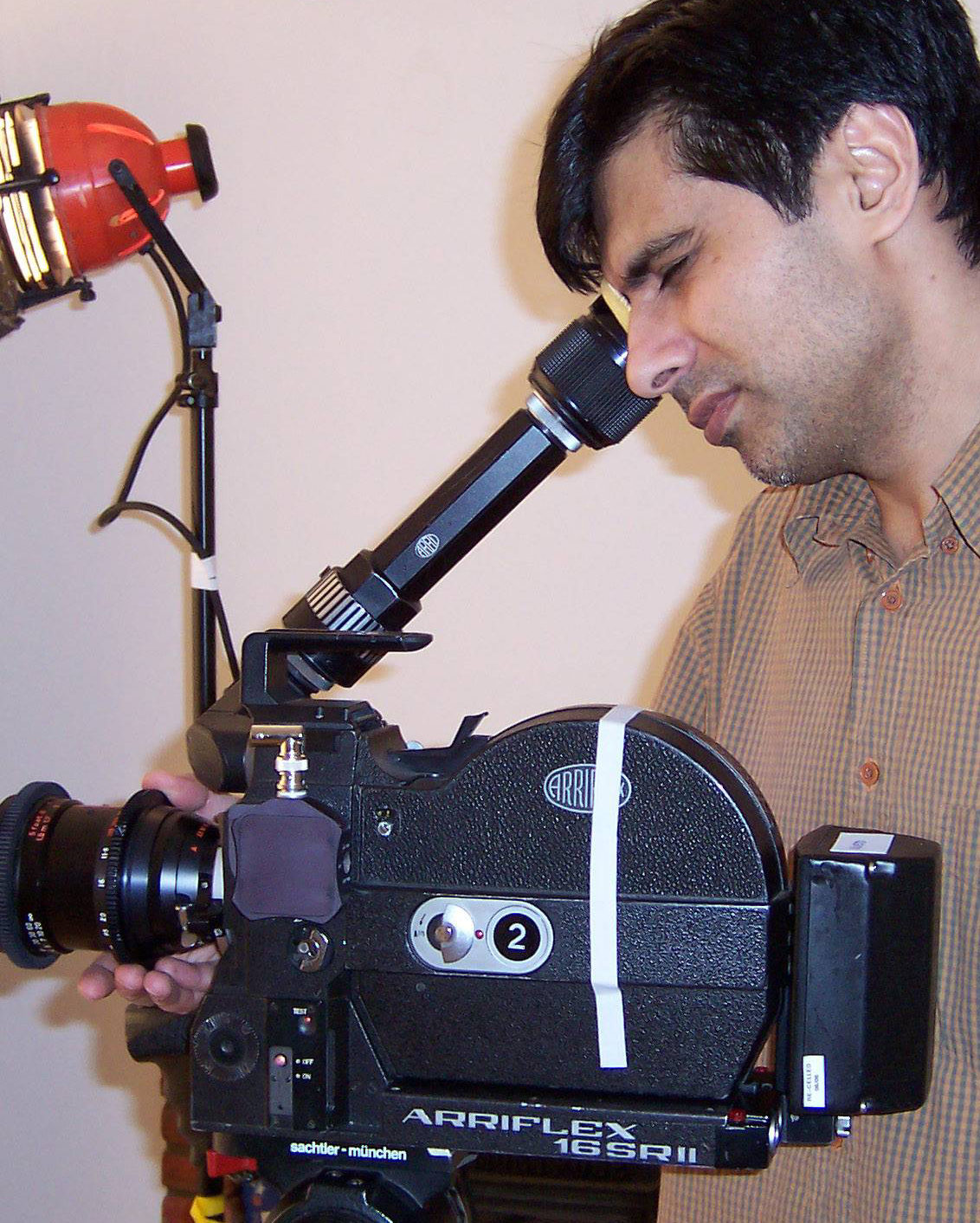ASK & DISCUSS
INDEXAvoiding clichès when seeking collaborators or employment
3 years, 8 months ago - John Lubran
The requirement of people to be "passionate" about film making in adverts, job or commissioning applications continues to be relied upon by so many. I blame 'resting' film lecturers giving career advice to students pursuing three year degree courses that ought not take more than weeks to accomplish.
It's become an off putting clichè consequential to lazy and or inadequate narrative eloquence. A key part of a compelling job application or call to arms is to use original and authentic language and avoid cliched words and phrases as much as possible. After all it's the essence of authentic and original film making.
There ought to be nothing clichèd about the much used "Break Out" clichè currently being deployed in the search for authentically original productions.
Perhaps it's why many, indeed most films, are so derivative of other actually original productions. 'Passion' comes in all sorts of manifestations, both wretched and glorious.
Only members can post or respond to topics. LOGIN
Not a member of SP? JOIN or FIND OUT MORE
3 years, 8 months ago - Jim Read
Honestly John - I think you've hit the nail on the head here for the most part.
I think what gets me every time is okay, you want me to be passionate about filmmaking - What aspect of it? Am I interested as an outsider or someone involved? What kind of films do I want to create (if I even do)?
Typically for me, it gives off the signal that the poster doesn't 100% know what they're looking for - either that or in some cases it can be a red flag that they're just looking for a newbie to the industry to exploit for low-to-no pay, long hours, no credits etc.
No shame though to those who don't know where they're going, what they want to be doing etc, from my own experience it wasn't until I hopped on a couple fiction sets, commercials etc for me to realise what I really loved and enjoyed was documentary/self-shooting/slice of life style filmmaking. It was all a bit of an organic process of fumbling my way through it, and to be honest, taking any opportunities I could get until I figured out where I wanted to be at.
3 years, 8 months ago - Vasco de Sousa
I doubt that you have ever been to a film lecture at a university. Ever.
I don't remember the word 'passionate' used once in three film schools (or any career advice given except for 'get a job as a runner and work your way up.'). Nor in any recommended texts.
I have seen that word used in adverts for high paying jobs at banks, the IT industry, real estate, and elsewhere. It is in project management and MBA courses.
Passion may be a cliche to some, and misused perhaps, but genuine passion helps people like me perform.
My last pitch lacked the passion of the previous three. It was about a script I had written years ago, and I rushed the pitch to get it in before the deadline. (The more successful scripts I had been revising recently, and so they were alive in me.)
And, when it was rejected from the bulletin, I wasn't surprised.
The previous three were written with more glee, a kind of 'let's have fun together' playfulness of a child. I still had the playfulness of the scripts in me, reworking them almost until the deadline.
It might not work for everyone, but if I can have passion about something, I personally do a much better job. I did not learn that in film school, I learnt that in life.
I don't mean to just call yourself passionate, that is nonsense. I mean enjoy something and want it to succeed.
I think that is easier to be passionate when you don't have to worry about money or get a second job to pay the rent, and don't have the self-esteem issues of a newbie. So, it makes sense for higher paying jobs looking for someone with experience.
3 years, 8 months ago - John Lubran
As it happens I've taught over 300 students between 1995 and 2015 whilst also producing or collaborating on a wide spectrum of productions. During that time our BFI and Skillset registered courses retained working links with several universities across the UK and abroad. Ironically we taught lecturers too.
In my homeland of Wales my relationship with state funded and indeed state controlled universities has been a mixed experience. Aberystwyth is far from being representative of all UK degree courses in film and media.
I'm not making it up when I declare that I can't remember the significant numbers of our students who told me that they had learned more from our short courses than they had in three years obtaining a degree. In my 37 years in film, media and entertainment, the lack of faith held by production companies and television broadcasters in the capabilities of new graduates has been a recurring theme. The BBC for example, when recruiting, prefer to hire people with degrees in just about any subject other than film and media. I could extrapolate on why that's been the case, however it ought not stretch sentient capacities to discern the obvious.
With regard to career advice provided to degree course students, the reliance upon cliched references has been widely reported by most new graduates. I've rewritten more CV's for my students than I can remember where students have repeated formulaic narratives, advised by their teachers, that could have been written by the same robot. The use of phrases relying upon self declared 'passion' and other clichèd constructions have usually been an over relied upon theme.
It's been no surprise to me that amongst degrees of all kinds, film and media degrees are proving to have less traction, in terms of actual career paths in the real world of film and media, than most other qualifications have in their own professions.
It's been evident to me that those CV's I've rewritten for students after removing robotic phrases, especially references to 'passion' have resulted in what ought to have been astonishingly greater successes. Appreciative testaments from our students over the years have been a corresponding feature.
The career success rates amongst our short course students have been, at the very least, greater than amongst those who have spent years in largely non sequitur academic pursuits preposterously stretched out in unnecessary and expensive courses.
The main virtue of such courses are with the social development of youngsters leaving home for the first time and the opportunity to grow and explore in differing environments.
The real world practical need of graduates, and even lecturers, to take our short courses reveals the truth.
I could go on. The list of stories that further illustrate the differences between fact and fiction is defining.
As I've long come to realise, great multi tasking film makers are much more born than taught.
3 years, 8 months ago - Paddy Robinson-Griffin
@John Lubran Just a thought about degrees in other subjects for TV work - I suspect that's at least in part due to there being so many roles (including many vocational ones) in a production that a wide range of skills are needed. IT skills, engineering, electronics, history, design, theatre, finance, law, business management, carpentry, lighting design, journalism, etc. For every director there's 100 other professionals, all with differnet things to bring to the table!
3 years, 8 months ago - John Lubran
@Paddy Robinson-Griffin
Absolutely Paddy.
The many accomplishments that go into productions, especially big ones, are commensurate with those that support many other other industries and walks of life. Some of them can't be achieved without a degree, usually longer and more demanding ones. There's somethings that are unforgiving of even small errors. The technicians, craftspeople, doctors and lawyers may or may not apply their skills to our industry.
Sometimes lawyers and scientists also become film makers, and their learned expertise informs their film making, even though such isn't essential to making films.
Many directors, producers, writers, editors, camera people and skilled creatives don't have a degree related to their job.
But I was discussing the inverse effect that cliches can have, even if only subliminally, on efforts to be compellingly effective.
Vasco made an assumption about my provenance that tickled my narcissism, not one of my best features. Nevertheless, the story I've shared is factual, even if only subjectively limited.
3 years, 8 months ago - Vasco de Sousa
I made an assumption about what you actually heard at other people's lectures, not your own. I don't know what you advised students or lecturers in your own. I don't know what CVs you have seen. (I have never seen passionate on a film or theatre CV, but maybe I haven't seen that many.)
I still don't think that language originated at film schools or has anything to do with film schools. Look up 'Passionate' on LinkedIn or any jobs site that does not cater to mainly film people. You probably won't find a single film or even art job (I didn't. I found mostly IT and bank jobs. The only low paid job I found was a waiter.)
I would associate the word 'passionate; with a TED lecture. Not with a film school lecture. Tech school drop-outs like Bill Gates use it all over the place.
Warren Buffet, who never went to film school and is older than you, said 'being successful at something means having a passion for it.'
Of course, there are also 'anti-passion' people, like Mark Cuban. So, there could be an argument against it.
But the word passionate has nothing whatsoever to do with film school. Don't blame the crocodile for what the scorpion does, or vice versa.
One of my biggest complaints about the 21st century is people find punching bags to blame everything on.
3 years, 7 months ago - Anca Badita
@John Lubran
In my third year in film school I went to the 'career advice' office to get some help with my CV and job applications. Even though they were the career advice office on the media and arts campus of the university, the woman working there clearly knew nothing about how to get a job in the creative industries and essentially helped me write a generic CV/cover letter that is the kind expected in the corporate world (and I don't even think it would be considered good in the corporate world). I don't remember if the word passion was used but, luckily for me, I did realise that my CV and cover letter felt wrong so I asked one of my film lecturers to help. He had actually worked in the industry and directed me to the websites of some diary services that had trainees on the books so I can see the format they use and how they present their skills and experience. I did manage to get trainee work and get into the industry but I must say it was only thanks to that lecturer.
I think too many universities want to have a variety of degrees to offer the students, who they clearly think of as customers, and they don't really do enough to build bridges with the industry. They think once you graduate their work is done.
3 years, 8 months ago - Mohammed Tahir
@John Lubran
Your posts are very insightful as usual. Could you please elaborate at little more on this: "As I've long come to realise, great multi tasking film makers are much more born than taught." Thanks.
3 years, 8 months ago - John Lubran
Ooh, turn an existential perception into a technical answer, let me see if I can enjoy answering it.
One memorable short course I taught was for two middle aged gentlemen who had both been series directors on one of the BBC's flagship factual programs; for over ten years. They came on our foundation camera course. Apparently at their time union demarcation rules prevented them from touching the camera ! After decades of entrenched methodology, reality and technology had begun to manifest fact above preposterous habits.
Up until the late 80's the vast majority of film and television craft trades were old school, narrowly skilled workers and their producers and directors were not very hands on.
By the 90's, despite fierce rearguard efforts by the old school to resist what they claimed would lower standards, the rise of the multi skilled filmmaker was unstoppable. The increasingly usable camcorder, beginning with Hi8 and then DV, DVCAM, HDV and now 100+ mbps 4k became even more effective for a range of high end broadcast productions that not only satisfy technically, but allow greater authenticity of factual representation by reducing crews to as little as one person with compact equipment.
Together with the availability of cheap computers and editing software the entire process was revolutionised. Now EBU Broadcast Standards can be met with cameras and powerful postproduction computers and software through to completions that meet high
quality deliverable requirements, with as little as £10k of production equipment.
People are able to effectively teach themselves how to concieve, organise, shoot, direct, sound record, edit and produce to high standards, and acquire those skills relatively quickly. It's been those independent multi skilled filmmakers who dominate factual broadcast television.
As a semi retired multitasking film and television worker, skills teacher and iconoclast since the 1980's, I've had some experience of newbies aspiring to make films on their own initiative with minimal reference to the more's of the industry establishment or it's academic familiers.
The list of such self motivated and self taught is long and successful. At Moving Vision we've taken on lots of collaborators and crew over the decades and observed the essential nature of accomplishments. Years of academic film making courses have not been much of a feature of those successes. Film making is an eclectic art more than it's a skill, especially now that the 'Emporers New Clothes' conundrum of preposterously expensive tools and business models are challenged. The power of affordable ones are getting stronger, almost by the week in some cases.
That successful film makers are born rather than taught is a consequence of these empowering, liberating and democratising things.
Here on SP there's a division between those majoring in fiction features and those more interested in factual and documentary. Whilst feature movies with authentic aspirations to have an economically viable audience are almost always megabuck affairs, requiring conciderable infrastructures that include specific competance commensurate
with professionalism, it's apparent that many of the greatest producers and directors had no formal training or qualification. It must flow from that, that they possessed some inborn quality that informed their ability to absorb the skills and knowledge needed subordinately. Some, if not most, of those eminents will have begun as mult tasking film makers. The same quality is found across society and amongst film makers, young and old.
It's an eclectic thing. Born more than taught.
3 years, 8 months ago - John Lubran
The reference to "absorbing skills and knowledge subordinately" defines the relative degree of importance between the innate character of a person and the acquisition of skills. The acquisition of skills being subordinate to the character of the successful filmmaker.
It's a starting at the top thing.





